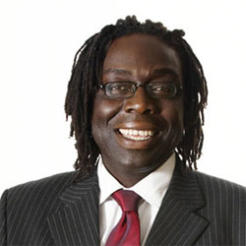Health and social care charity Turning Point grew its income by almost 5 per cent and added 182 more staff to its roster during the year to 31 March 2012.
Its annual report and accounts just published show that total income across the Turning Point group increased from £75.9m to £79.3m, thanks mainly to growth in new business, particularly in services for people with learning disabilities. Some £64.8m of its total income was in the form of revenue grants from local authorities and other agencies, up from £62.7m in 2011.
The charity posted a surplus at the year-end of £5.1m.
However, it admitted that the overall growth masked some ups and downs across various sectors. There was growth in mental health, learning disabilities and primary care services (mainly the Earl’s Court Health and Wellbeing Centre); but income fell in substance misuse and employment services, and in connected care, the community research arm which aims to encourage local people to influence the design and delivery of new services.
Income from residential services also exceeded income from non-residential services this year; the ratio was £45.7m residential to £33.5m non-residential in 2012, compared with £32.3m residential and £43.4m non-residential in 2011.
Although Turning Point has recently signed a number of multi-million-pound contracts alongside Serco and Catch22 to deliver services in prisons, none of this income has materialised yet as the work will be funded on a payment-by-results basis and all the contracts are in very early stages.
Turning Point’s report is a rare good-news story in a sector that has been hammered by cuts in public spending and the increasing use of personal budgets.
Major finance function review
The charity’s report makes much of the conclusion of Programme Eden, a two-and-a-half-year overhaul of its finance function which has enabled it to “deliver an enhanced service at a reduced cost”.
The remit of Programme Eden was to “design new efficient and effective processes, upgrade and enhance our systems, implement new organisational structures to support our aims of making the finance function a better partner to the business, drive results and embed financial competency and discipline throughout the business”.
It comprised 11 separate phases of work over 29 months; reviewed and improved more than 200 finance processes and trained more than 300 people on new processes and systems. “The finance team invested more than 2,000 days of effort to make Programme Eden a success and more than 500 critical and important business requirements were successfully delivered.”
It was one of the biggest change-management projects ever undertaken by the charity, and came in on time and under budget.
This, combined with a new governance framework and staff training programme “have ensured we are ahead of the curve and in a strong position to help shape the direction of health and social care in the UK”, the report stated.
The charity added 182 staff during the year, on top of the 305 new employees that joined during 2011. It now employs the equivalent of 2,084 full-time staff.
Chief executive, Lord Victor Adebowale (pictured), was paid £165,000 during the year, the same salary as he received in 2011.
Turning Point has now reached the end of its five-year strategic plan for 2007 to 2012, and a new five-year strategy will launch this year, aiming to “equip the organisation to compete successfully in what is a challenging external environment”. The charity highlighted the growing prevalence of payment-by-results policies and personalisation of services as key challenges.









